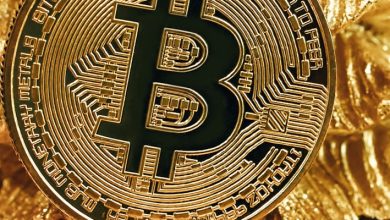Investing in DeFi Projects: What You Need to Know

- Understanding DeFi and its potential
- Risks and rewards of investing in DeFi projects
- Key factors to consider before investing in DeFi
- How to identify promising DeFi projects
- Regulatory challenges in the DeFi space
- The future of DeFi and its impact on traditional finance
Understanding DeFi and its potential
Decentralized Finance, or DeFi, is a rapidly growing sector within the cryptocurrency industry that aims to revolutionize traditional financial systems by leveraging blockchain technology. DeFi projects allow users to access a wide range of financial services without the need for intermediaries such as banks or brokers. This opens up new opportunities for individuals to participate in lending, borrowing, trading, and other financial activities in a more transparent and efficient manner.
One of the key advantages of DeFi is its potential to provide financial services to individuals who are underserved or excluded from the traditional banking system. By using smart contracts and decentralized applications (dApps), DeFi projects can offer services such as loans, savings accounts, and insurance to anyone with an internet connection. This has the potential to democratize finance and empower individuals to take control of their own financial future.
Investing in DeFi projects can be a lucrative opportunity for those willing to do their due diligence and understand the risks involved. It is important to research the team behind the project, the technology they are using, and the potential market demand for their product. Additionally, investors should be aware of the volatility of the cryptocurrency market and be prepared for price fluctuations.
Risks and rewards of investing in DeFi projects
Investing in DeFi projects can be a lucrative opportunity for those looking to diversify their portfolio and potentially earn high returns. However, it is essential to understand the risks and rewards associated with this type of investment.
One of the main risks of investing in DeFi projects is the volatility of the market. Prices can fluctuate dramatically in a short period, leading to significant gains or losses. Additionally, the decentralized nature of DeFi projects means that there is a higher risk of hacking and security breaches, which can result in the loss of funds.
On the other hand, the rewards of investing in DeFi projects can be substantial. With the potential for high returns on investment, many investors are drawn to this emerging market. DeFi projects also offer the opportunity to participate in innovative technologies and financial products that are not available in traditional markets.
It is crucial to carefully consider the risks and rewards of investing in DeFi projects before making any decisions. Conduct thorough research, diversify your investments, and only invest what you can afford to lose. By staying informed and cautious, you can navigate the world of DeFi investments successfully.
Key factors to consider before investing in DeFi
Investing in DeFi projects can be a lucrative opportunity, but it is essential to consider several key factors before diving in. One crucial aspect to evaluate is the **security** of the project. **Security** breaches in DeFi platforms are not uncommon, so it is vital to research the **security** measures in place and the track record of the project in this regard.
Another important factor to consider is the **liquidity** of the project. **Liquidity** is crucial for trading and **yield farming**, so ensure that the project has sufficient **liquidity** to support your investment goals. Additionally, assess the **team** behind the project. A strong and experienced **team** can significantly impact the success of a DeFi project.
Furthermore, it is essential to understand the **technology** and **protocols** used by the project. Different DeFi projects utilize various **protocols** and **blockchain** technologies, each with its strengths and weaknesses. Make sure to research and comprehend these aspects before investing.
Lastly, consider the **regulatory** environment surrounding the project. DeFi is a relatively new and rapidly evolving space, and **regulatory** changes can have a significant impact on the project’s **viability**. Stay informed about the **regulatory** landscape and how it may affect your investment in a DeFi project. By carefully evaluating these key factors, you can make more informed investment decisions in the DeFi space.
How to identify promising DeFi projects
When looking to invest in DeFi projects, it is crucial to be able to identify promising opportunities that have the potential for growth and success. Here are some key factors to consider when evaluating DeFi projects:
- Team: One of the most important aspects to consider is the team behind the project. Look for experienced developers and industry experts who have a track record of success in the blockchain and DeFi space.
- Technology: Evaluate the technology and infrastructure that the project is built on. Make sure it is secure, scalable, and innovative to ensure long-term viability.
- Community: A strong and engaged community is essential for the success of a DeFi project. Look for projects with active social media channels, forums, and community events.
- Use case: Consider the real-world problem that the project is aiming to solve. Projects with a clear and practical use case are more likely to succeed in the long run.
- Partnerships: Partnerships with established companies and organizations can provide credibility and open up new opportunities for growth. Look for projects that have strategic partnerships in place.
By carefully evaluating these factors, you can increase your chances of identifying promising DeFi projects that have the potential to deliver strong returns on your investment.
Regulatory challenges in the DeFi space
One of the major challenges facing the decentralized finance (DeFi) space is navigating the complex regulatory landscape. As DeFi projects continue to gain popularity and attract more investors, regulators around the world are starting to take notice. This increased scrutiny has led to a number of regulatory challenges for DeFi projects, including uncertainty around compliance requirements and the potential for regulatory crackdowns.
Regulatory uncertainty can make it difficult for investors to assess the risks associated with investing in DeFi projects. Without clear guidelines from regulators, it can be hard to determine whether a project is operating within the bounds of the law. This lack of clarity can lead to increased risk for investors, as they may unknowingly be participating in activities that are illegal or non-compliant.
Another challenge facing DeFi projects is the potential for regulatory crackdowns. As regulators become more aware of the risks posed by DeFi projects, they may take action to shut down or restrict the activities of these projects. This could have a significant impact on the value of investments in DeFi projects, as well as the overall growth and development of the DeFi space.
The future of DeFi and its impact on traditional finance
The future of decentralized finance (DeFi) is poised to revolutionize the traditional financial sector in profound ways. As DeFi projects continue to gain traction and popularity, they are challenging the status quo of traditional finance by offering innovative solutions that are more efficient, transparent, and accessible to a wider range of users.
One of the key impacts of DeFi on traditional finance is the disintermediation of financial services. By leveraging blockchain technology and smart contracts, DeFi platforms enable users to access financial services such as lending, borrowing, and trading without the need for traditional intermediaries like banks or brokers. This not only reduces costs but also eliminates the need for trust in third parties.
Furthermore, DeFi projects are democratizing access to financial services by providing a level playing field for users around the world. Unlike traditional finance, which often excludes individuals without access to banking services or credit, DeFi platforms allow anyone with an internet connection to participate in the global financial system.
As DeFi continues to evolve and mature, it is likely to disrupt traditional financial institutions and business models. Banks and other financial intermediaries will need to adapt to the changing landscape or risk becoming obsolete. In the long run, DeFi has the potential to reshape the entire financial industry, making it more inclusive, efficient, and decentralized.



